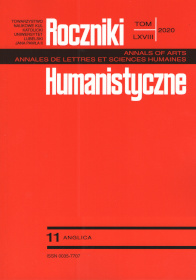The Multitudinous Sparseness of Space in Harry Thurston’s Broken Vessel
The Multitudinous Sparseness of Space in Harry Thurston’s Broken Vessel
Author(s): Leonor María Martínez SerranoSubject(s): Language and Literature Studies, Studies of Literature, Other Language Literature
Published by: Towarzystwo Naukowe KUL & Katolicki Uniwersytet Lubelski Jana Pawła II
Keywords: Canadian poetry; Harry Thurston; ecopoetry; more-than-human; trans-corporeality; space; place; desert
Summary/Abstract: In January and February 2000, Canadian poet-naturalist Harry Thurston (b. 1950) spent 35 days in the Sahara with a team of archaeologists conducting research at the Egyptian oasis of Dakhleh in the Western Desert. Confronted with the vastness of a territory at once foreign and familiar, he decided to respond to the experience of living in the desert with poems of haiku-like brevity he would write each day he spent on camp. The fruit of this spiritual experience was Broken Vessel (2007), a book that seeks to capture the mystery of the desert, a space that has held a century-long fascination for the human imagination. Following Tuan’s dichotomy of space vs. place, Bennett’s notion of vibrant matter, and ecocritical concepts concerning ecopoetry as place-making, this article examines Thurston’s insights into the more-than-human world embodied by the desert, based on his firsthand observations and his imaginings of the known and revealed history of the Sahara.
Journal: Roczniki Humanistyczne
- Issue Year: 68/2020
- Issue No: 11
- Page Range: 161-179
- Page Count: 19
- Language: English

